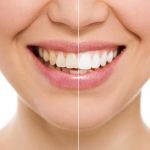Understanding Resistance to Fracture of Porcelain Dental Crowns
- Importance of Fracture Resistance in Porcelain Dental Crowns
- Factors Affecting the Fracture Resistance of Porcelain Crowns
- Case Study: Preventing Fracture in Porcelain Crowns
- Choosing the Best Porcelain Crown for Durability
Importance of Fracture Resistance in Porcelain Dental Crowns
Porcelain dental crowns have become the gold standard in restorative dentistry due to their aesthetic appeal and durability. However, one of the key concerns patients and dentists face is the resistance to fracture. The ability of a porcelain crown to withstand pressure and stress plays a critical role in its long-term success. If a crown is not strong enough to handle normal biting forces, it may fracture, leading to costly repairs or replacements. Therefore, understanding the fracture resistance of porcelain crowns is essential for ensuring a durable and effective restoration.
Factors Affecting the Fracture Resistance of Porcelain Crowns
The resistance to fracture in porcelain crowns is influenced by several factors, including:
- Material Composition: The type of porcelain used in dental crowns can significantly impact their strength. For example, feldspathic porcelain, while aesthetically pleasing, may not offer the same durability as more advanced materials like lithium disilicate.
- Crown Thickness: Thicker crowns are generally more resistant to fractures. However, they must still be carefully tailored to the patient's bite and the specific tooth being restored.
- Preparation of the Tooth: The way the underlying tooth is prepared for a crown can influence its ability to resist fractures. Proper tooth preparation ensures a good fit, which can reduce stress on the crown.
- Bonding Strength: The adhesive used to attach the crown to the tooth also affects its fracture resistance. Strong bonding ensures the crown stays securely in place and is less likely to break.
Case Study: Preventing Fracture in Porcelain Crowns
In one case, a patient received a porcelain crown to restore a molar after a root canal procedure. Initially, the crown appeared to be well-fitted and was aesthetically pleasing. However, after a few months, the patient experienced discomfort when chewing hard foods. Upon inspection, the crown showed signs of minor fractures at the edges. This issue was traced back to the choice of material used for the crown. The porcelain material selected was not designed for high-stress areas like molars. The patient’s dentist replaced the crown with a more fracture-resistant material, and the new crown has lasted without issue.
Choosing the Best Porcelain Crown for Durability
When selecting a porcelain crown, it's essential to consult with your dentist to choose the best material for your needs. Factors such as your bite, the location of the crown, and your aesthetic preferences should all be considered. Some materials, like lithium disilicate, offer superior fracture resistance and are often recommended for posterior teeth that endure more significant biting forces. On the other hand, porcelain-fused-to-metal crowns can provide additional strength while still offering a natural appearance. Ultimately, the right choice will depend on balancing durability, appearance, and your specific dental needs.
Understanding the importance of fracture resistance in porcelain dental crowns is critical for making informed decisions about your dental care. Whether you're considering a crown for aesthetic reasons or durability, choosing the right material and ensuring proper placement can make all the difference in the longevity of your restoration.
If you're considering porcelain dental crowns or are concerned about the durability of your current restoration, consult with a professional who can guide you in choosing the best option tailored to your needs.







 Hurley and Volk Orthodontics - South Elgin4.0 (410 review)
Hurley and Volk Orthodontics - South Elgin4.0 (410 review) AAA Dental Centers3.0 (20 review)
AAA Dental Centers3.0 (20 review) Chapman Family Dentistry5.0 (196 review)
Chapman Family Dentistry5.0 (196 review) Dr. Lutfi Nassar, DDS5.0 (5 review)
Dr. Lutfi Nassar, DDS5.0 (5 review) Ladera Dentistry5.0 (770 review)
Ladera Dentistry5.0 (770 review) ADVANCED SMILES PC4.0 (205 review)
ADVANCED SMILES PC4.0 (205 review) The Importance of Oral Health Education During Pregnancy for a Healthy Pregnancy
The Importance of Oral Health Education During Pregnancy for a Healthy Pregnancy Best Tips for Brushing Your Teeth Properly for Healthy Gums: Essential Techniques for Oral Health
Best Tips for Brushing Your Teeth Properly for Healthy Gums: Essential Techniques for Oral Health Why Skipping Dental Checkups Can Lead to Bigger Oral Health Problems
Why Skipping Dental Checkups Can Lead to Bigger Oral Health Problems Advantages of Porcelain Dental Restorations
Advantages of Porcelain Dental Restorations How Can Diabetes Cause Tooth and Gum Problems? Preventing and Managing Oral Health Issues
How Can Diabetes Cause Tooth and Gum Problems? Preventing and Managing Oral Health Issues Healthy Habits for Promoting Good Oral Health and Hygiene: Tips for a Healthy Smile
Healthy Habits for Promoting Good Oral Health and Hygiene: Tips for a Healthy Smile